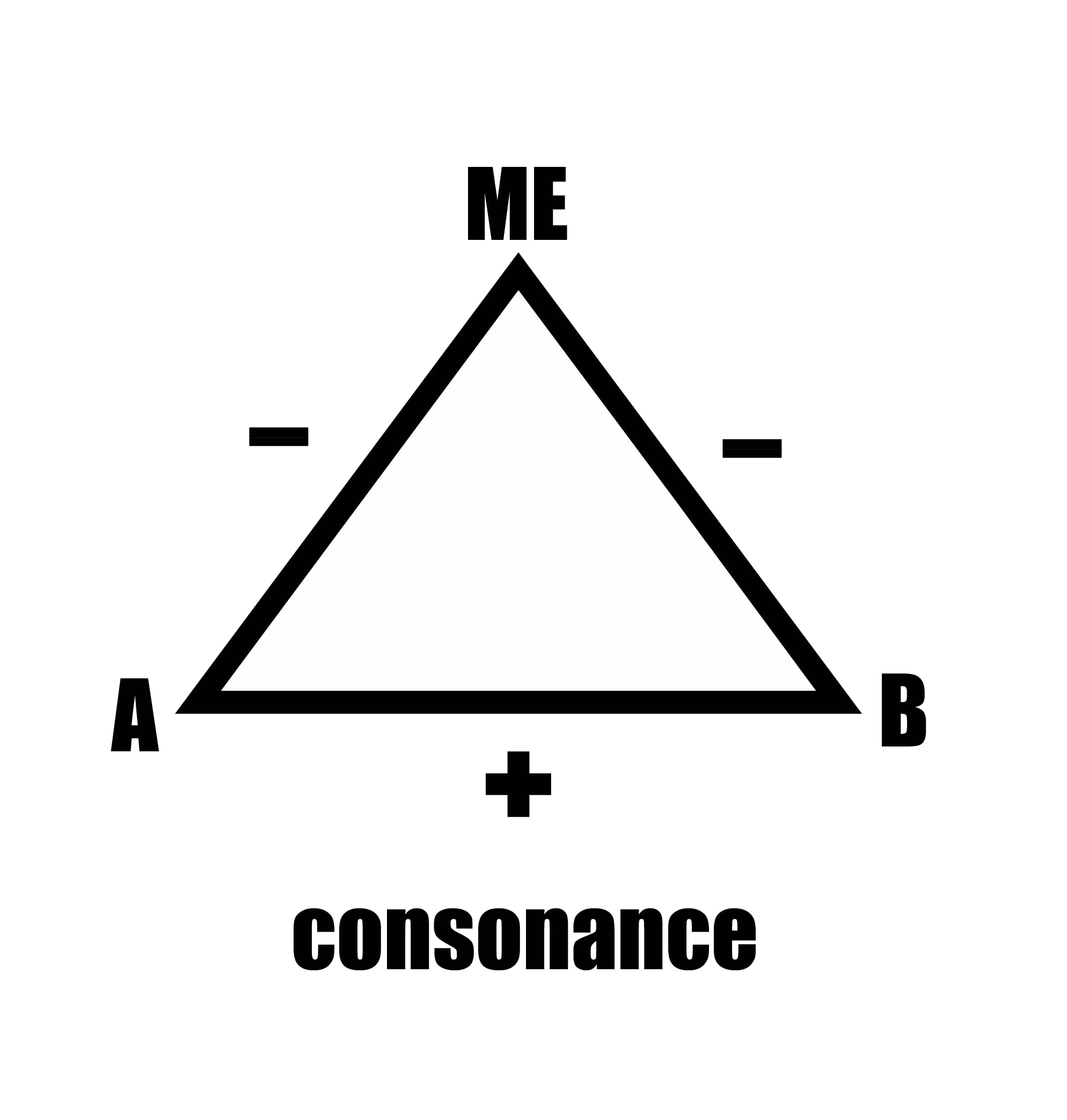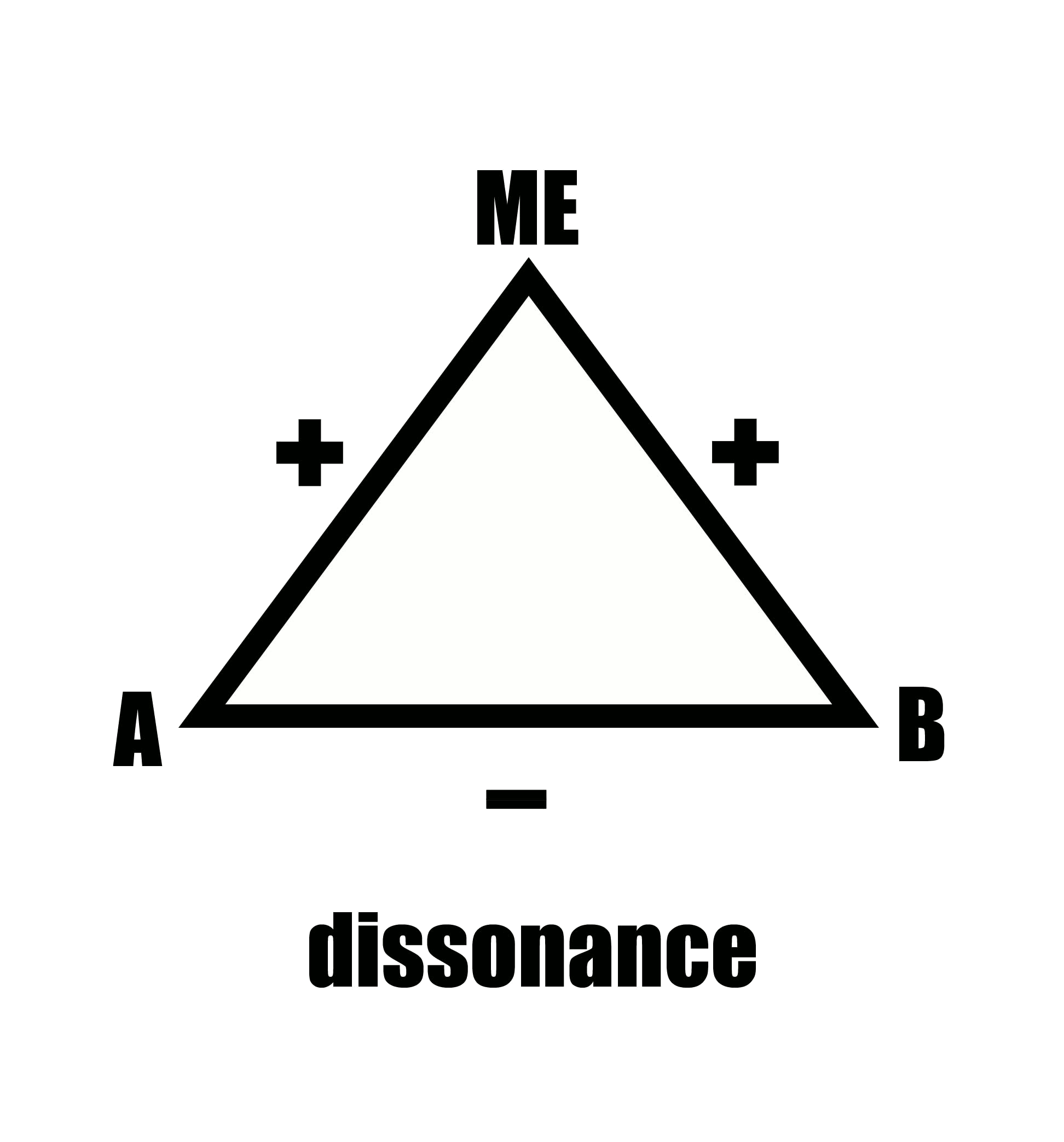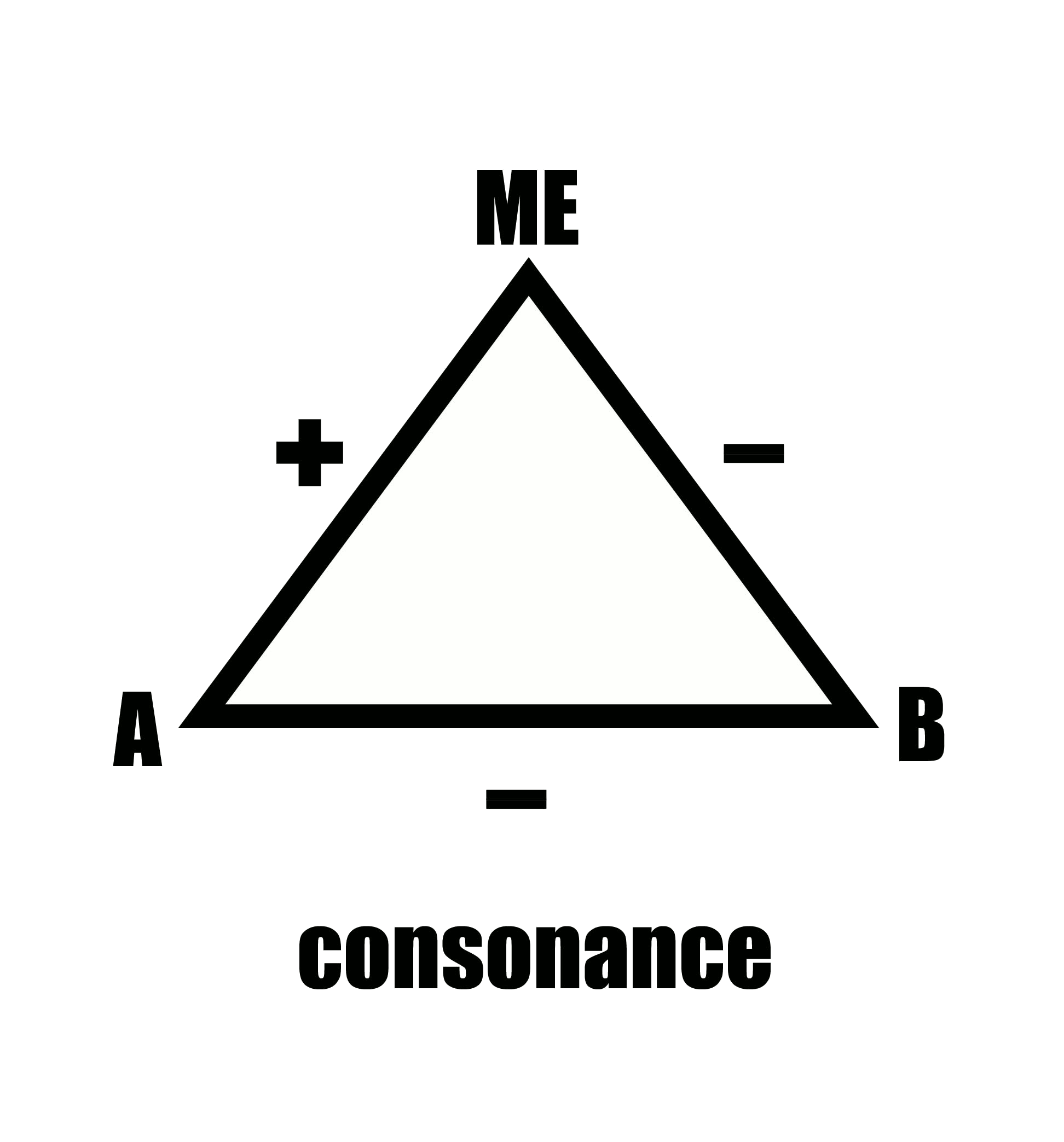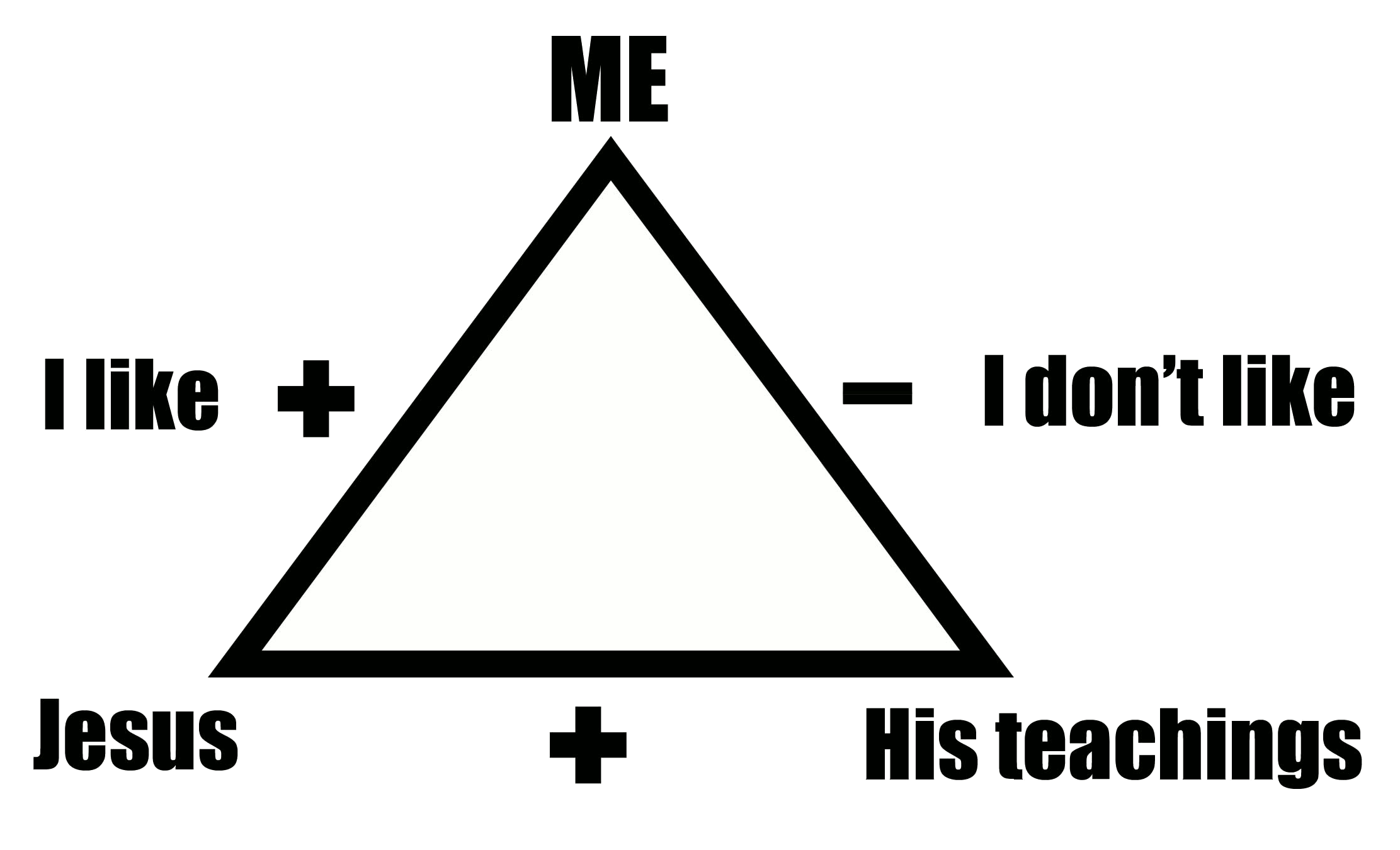Cognitive Dissonance is mental tension caused by contradictory information received by the brain.
For example, if your name is Joe Bloggs, but people start calling you John Doe, your brain searches for an explanation. Too much contradictory information like this can cause a mental breakdown. So our brains will go to great lengths to make sense out of contradictions rather than put up with the dissonance.
Below is a simple illustration of mental dissonance and mental consonance.



A similar contradiction can occur with the teachings of Jesus. If I say that I like Jesus, and if he is serious about what he taught, then it makes sense that I would like his teachings. If not, the contradiction could be silenced by simply dropping Jesus and finding a leader whose teachings I do agree with. But, in our society, being "Christian" is synonymous with being good and being respectable. I cannot drop Jesus without dropping my respectability.
 So in order to silence the dissonance that this creates, I must either (a) accept his teachings; (b) separate Jesus from his teachings; or (c) alter my understanding of his teachings so that they are consistent with my actions.
So in order to silence the dissonance that this creates, I must either (a) accept his teachings; (b) separate Jesus from his teachings; or (c) alter my understanding of his teachings so that they are consistent with my actions.Very few people are willing to alter their actions to conform with Christ's teachings, so they usually opt for "b" or "c".
Those who say we can accept the name of Christ, divinity of Christ, cross of Christ, or person of Christ without accepting his teachings are using plan "b".
And those who argue that Jesus didn't mean the things he said or was only speaking metaphorically are using plan "c".
In either case, the decision is first made to reject his teachings, and then a strategy is selected to justify (or bring cognitive consonance out of) the decision.
But in each case, the person is fighting against their conscience, and in so doing, they are risking serious psychological damage.
(See also Sociology Lessons.)
Register or log in to take the quiz for this article

